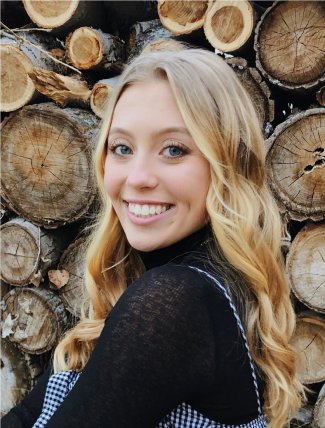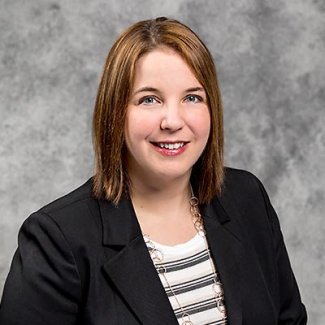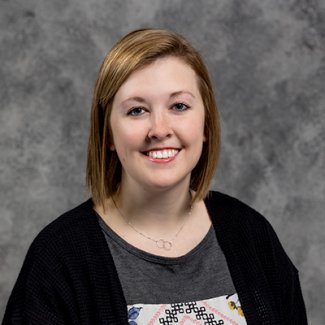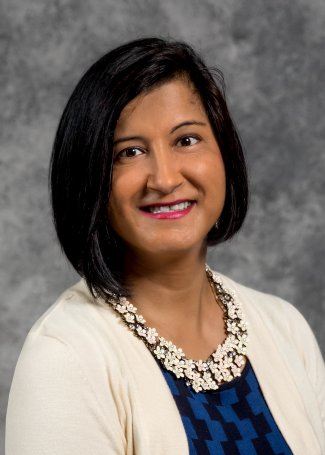Deirdre Cross is a Human Biology major at South Dakota State University, also pursuing minors in Chemistry and Health Education. She is on a pre-physician’s assistant track, with plans to become a PA after graduation. In addition to pursuing her major, two minors and being an honors student, Cross has also earned a phlebotomy certificate.

A Phlebotomist is a medical professional who draws blood. Phlebotomy is an important part of many aspects of health care: in addition to drawing blood for blood donations or transfusions, phlebotomy is also important for conducting laboratory tests. According to Stacie Lansink, program director for SDSU’s Medical Laboratory Science (MLS) program and the Phlebotomy Certificate, 70%-80% of a patient’s medical history comes from the lab, indicating the important role a phlebotomist can play in a patient’s health journey.
The phlebotomy certificate has been offered at SDSU since Fall of 2020 and the first cohort of students completed the program in Spring of 2022. “The certificate is a great place to start if someone is interested in healthcare,” said Lansink. “It can be useful when applying to nursing, pharmacy, medical, or laboratory science programs, especially those that may require an applicant to have some patient interaction, as it is a skill to be able to draw blood from a patient.”
Cross, who was part of that first cohort of students, said she chose to pursue the phlebotomy certificate to Increase her involvement in healthcare. "I enjoy the analytical and detailed side of healthcare and found that phlebotomy is a great combination of direct care and knowledgeable experience.”
Kassi Erickson is an instructor in the MLS program at SDSU who teaches courses for the phlebotomy certificate. According to Erickson, the two most important things for healthcare workers are safety and proper patient identification. “Since they work at the bedside, these two are critical for phlebotomists.” Students in the program learn proper safety techniques by learning firsthand how to use standard precautions, proper hand hygiene, and use of appropriate PPE. Proper patient identification processes and proper blood collection techniques, including how to assess and ensure specimen integrity, are also taught.

Students learn these skills over the course of nine credits in courses like Understanding Medical Laboratory Science, Laboratory Methods and Phlebotomy Clinical Experience. According to Lansink, “Students take two online courses in the Fall semester then come to campus in the Spring semester for lab, where they learn how to draw blood and process specimens.” After that, students complete their mandatory clinical experience in a hospital or clinic setting.
Erickson said she loves interacting with students and teaching them about the things she’s passionate about. For Erickson, a highlight of every year is when students do their first “poke.” A poke, or venipuncture, is when a phlebotomist punctures a vein to extract a blood sample. According to Erickson, on the day of their first poke, “every student comes to lab very apprehensive and nervous before they poke their first patient, but the pure joy, pride, and relief they express after the first successful poke is very rewarding to me.”
Cross provided some additional insight into what class and lab might look like when she explained that Erickson will sometimes allow her students to practice their skills on herself. “Ms. Erickson has a lot of experience in medical laboratory science and does a fantastic job of allowing students to learn not only through lecture, but hands on,” said Cross.
Erickson said that students of the Phlebotomy Certificate gain many things including “the education and experience necessary to complete the national phlebotomy certification exam” as well as “essential knowledge that will benefit their futures in whatever healthcare field they desire.”

Cross said that throughout her time in the phlebotomy certificate program, “I learned a ton about blood work and direct health care experiences. We were taught not only how to perform phlebotomy and respectful care, but how to perform laboratory blood testing and remote testing. I have worked in laboratory phlebotomy, as well as therapeutic phlebotomy, and have been able to apply my knowledge gained through SDSU’s program to help not only myself, but my coworkers.”
She went on to explain how her phlebotomy coursework and training has benefited her in other ways, including in her future career. “I have been able to apply my knowledge to my other courses, including microbiology and medical microbiology. In my future career as a physician’s assistant, I will be able to apply my phlebotomy certification to help me understand what tests I am ordering, how to respectfully treat patients, and general anatomy of vasculature.”
Cross also noted how valuable the clinical experience she received through the program was. “Being able to go down to Avera McKennan in Sioux Falls and apply my certification on real patients was an experience I will never forget. It allowed me to gain confidence in my skills and better understand how the healthcare system works.”
Despite the phlebotomy certificate program at SDSU being so young, Lansink explained that past students of the program have gone on to medical school, nursing school, or into laboratory science. "Most graduates now work in hospitals collecting blood, while others have continued to expand their knowledge bases.”

“We continue to see a rising need for Phlebotomists across our state and country,” said Dr. Sharrel Pinto, department head for Allied and Population Health which houses both MLS and Phlebotomy Certificate. “We are glad to have a program that trains high quality phlebotomists to meet the growing needs of our healthcare partners.”
Cross will graduate in May of 2024, but has already put her Phlebotomy knowledge and experience to good use. Currently, she’s working as a Phlebotomist on-campus with the Health and Nutritional Sciences Department on a clinical research study. When she graduates next year, her Phlebotomy experience will be a valuable asset as she continues her career in healthcare.
Because of the accessible program offerings, the valuable teachings from the program’s instructors, and successes experienced by students like Cross, SDSU’s Phlebotomy Certificate has already begun to receive recognition. Last September, the program was ranked the top online phlebotomy classes and certification program of 2023 by EduMed, an online organization that helps students find the best programs to help students achieve their dream careers.
Applications for the Phlebotomy Certificate program are currently open. Learn more or apply
- Contact:
- Telephone number: 605-670-9658
Republishing
You may republish SDSU News Center articles for free, online or in print. Questions? Contact us at sdsu.news@sdstate.edu or 605-688-6161.

